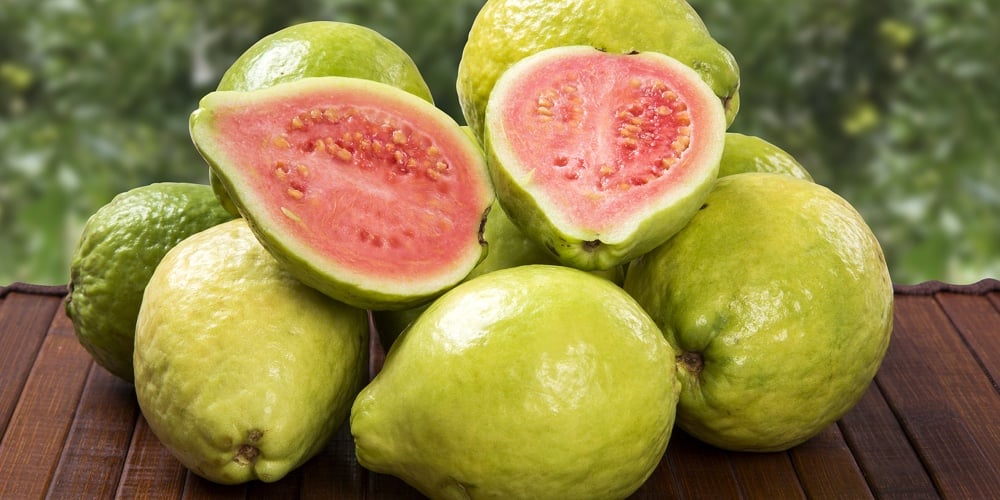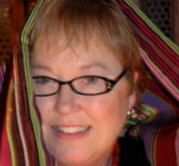International CU development: How guava chips fund college

Her braid. It was the first thing I noticed. It lay thick and silky across her shoulder like a Gauguin painting. She wore a traditional Malay ikat fabric skirt and a Grateful Dead t-shirt. Wall to wall, other women sat cross-legged on the floor of the small living room.
When we arrived late to the credit association gathering, the weekly meeting had already begun. I felt like an interloper as I leaned against a wall watching. I caught the eye of the woman with the braid. She beckoned me with a smile to sit beside her. I happily crept forward and slid to the floor next to her. Our touching thighs and shoulders kept me from falling sideways. I’m not used to sitting on the floor.
I felt her furtive side glances as I listened to the presentation. Tagalog is a melodious flow of sound and I understood not a single word. The atmosphere was friendly as all eyes concentrated on the speaker pointing at numbers on a chart.
My floor mate reached into her skirt pocket. She pointed with a finger at the passbook in her hand, then pointed at the woman speaking. I understood in a moment they were discussing how savings accumulate. In slow motion she slid her passbook open in front of me. With a shy grin, she indicated the savings balance. She had the equivalent of $548 in savings. I saw pride and self-confidence in her smile.
She leaned into me and rested her arm on my leg for the remainder of the meeting, as though we’d known each other since childhood. I felt at once the warmth of acceptance and the power of sisterhood.
Her name was Maria and we had the pleasure of visiting her business later that same day. Her business was also her home in a high-density, low-income neighborhood. Maria’s porch resembled a 7-Eleven: candles, matches, teabags, coffee and soaps. Loose candies in jars sat alongside a variety of canned goods on shelves lined with bright fabrics. Her porch store was orderly and immaculate. Shutters secured the products at night.
We settled into cushioned chairs, and Maria served tea and home-made guava chips as she shared her story:
“Eight years ago,” she began, “my husband was the only income-earner in the family and he lost his security officer job. Times were difficult feeding three children and keeping a solid roof over our heads. We barely scraped by. I used to buy potatoes from wholesalers to sell at market, but I hardly sold enough to pay back the weekly, high interest loan owed the wholesaler.
One afternoon a group of neighbor women visited. I served tea and set out my homemade guava chips,” and she pointed at the bowl of chips from which I had just helped myself to a second generous portion. “And the women helped themselves liberally as I’m known for my chips.” She gave me a smile of pleasure at my mouthful of her chips.
“One neighbor brought a friend, Glory, who asked how I prepared the chips with so much flavor. And where did I sell them? I remember responding it was a secret family recipe and I only gave them away to family and friends.”
In a loud whisper, Maria explained, “I put spices in the oil before frying instead of adding them after frying. That’s the secret!” she grinned.
Maria continued, “Glory said I should sell the chips because they were the best she’d tasted. When I explained I’d never know how to start, Glory told about her membership in a credit cooperative solidarity group. And how women helped women with loans to start businesses.”
“So I became a member of a solidarity group and it changed my life. The women in my group each sold different products. They freely shared their experience and strategies. With my first loan I bought guava wholesale. And I began selling handfuls of chips right off this very porch.
When my solidarity group took a field trip to a large grocery store, I saw how commercial chips were packaged. I confess I came home a bit depressed, thinking I could never achieve the professional level of packaging I’d seen in the store.
The members in my group convinced me otherwise. One woman suggested I buy plastic baggies. Another suggested melting the open end of the baggies over a candle to seal them. Another suggested setting up a table during lunch breaks outside the school where wealthy families sent their children. It worked so well that I soon employed one of my neighbors who took baskets of chips to other schools.
Maria excused herself and disappeared from the porch into her house. When she returned, she dragged onto the porch two heavy burlap sacks almost as tall as she was. They were filled with uncut guava. She continued, “The chips became so popular, I asked my neighbor to join me in the business for a share in the profits.”
With a big grin she pointed at the burlap bags, “I process into chips, and sell two of these bags of guava every day. I employ three women full-time. And my husband is now the chief guava chopper!”
“Best of all, for the first time in the history of my family, I have a daughter about to graduate from university!”
And that is the power of credit union solidarity.





